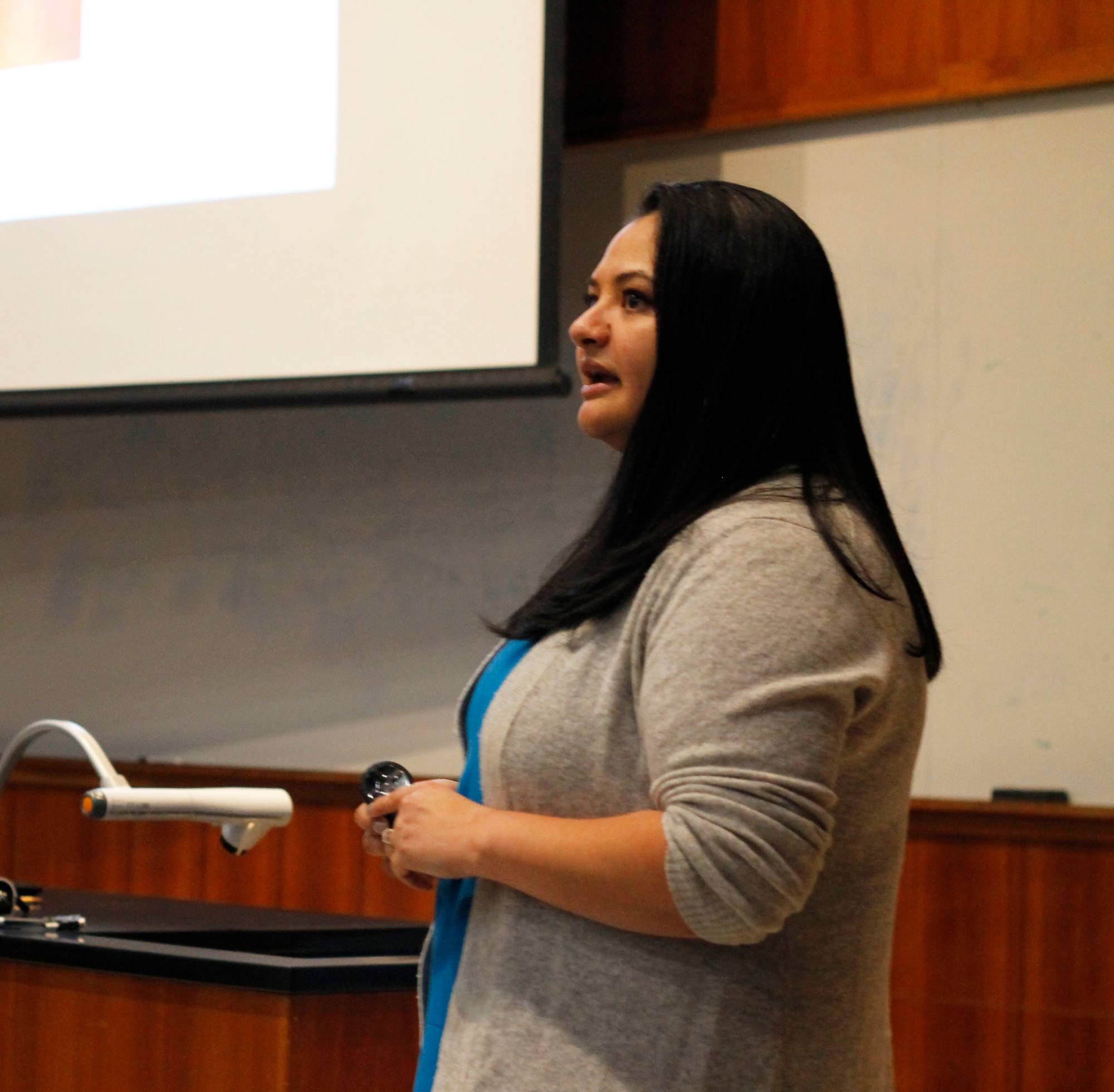Mosaic Lecturer Pamela Harris describes life as an "Academic Dreamer"

Pamela Harris, Assistant Professor of Mathematics at Williams College, delivered the 6th Annual Mosaic Lecture on a Tuesday evening in March. In her talk, “The Lonely Reality of an Academic Dreamer,” Dr. Harris shared her powerful personal story of emigrating to Milwaukee, WI, from Guadalajara, Mexico, at the age of 12 and how eventually becoming undocumented affected her journey and her life.
In Dr. Harris’s introduction, we learned that even though she is still early in her career, she has an amazing list of accomplishments: she held a postdoctoral position for four years at the United States Military Academy, has been at the prestigious Williams College for three years, has already published 40 research papers, has given 80 research presentations, and has won a national teaching award. She juxtaposed these impressive achievements with the part of her story where, as a first-year college student at a Milwaukee community college, she was assessed as having 7th-grade level mathematics proficiency. In her first course at the community college, she volunteered an answer in response to her instructor’s question that showed she didn’t understand that how adding numbers was different from multiplying them. Her teacher, rather than criticizing her, simply gently pointed out that the mathematical ideas worked differently than Pam was thinking about them, and encouraged her instead. This story led to one of Dr. Harris’s directives to us: meet your students where they are.
Dr. Harris’s family moved to Wisconsin when she was 12 years old as her parents sought a better life for her and her brother. She shared that she and her family became undocumented when they overstayed their visas. This led to many different challenges for her as she lived in fear of being discovered, and the fact of being undocumented severely limited her options for college. Dr. Harris’s story showed how families come to the US legally, find a genuine home here, start paying and continue to pay taxes, and that young children have no choices in the process: they simply are there because of their parents. Even though it likely hasn’t been shared with us, all of us have taken classes with or taught students who are undocumented. Dr. Harris encouraged us directly: find ways to let undocumented students know that you see them and support them, such as by posting a “Dreamers Welcome” sign on one’s door.
Despite being an amazing mathematical talent herself, it took Dr. Harris a long time to find her identity as a mathematician. It was only when she met a fellow Latina mathematician a few years her senior, the American mathematician Erika Tatiana Camacho, that she could see that she herself was a research mathematician. In part through this story, and in part through telling the story of two mathematicians she had as professors and mentors at Marquette, Dr. Harris repeatedly pointed out the power of mentors: it’s crucial for all students to have mentors who care for them and point them to opportunities they don’t yet see for themselves, and mentors in whom they can possibly see their own future. At one point when she was an undergraduate taking and struggling with real analysis, her professor at Marquette University said, “when you go to graduate school, these ideas will be important to understand.” Not “if” you go, but “when”. Dr. Harris said this offhand comment powerfully affected her and showed her the confidence her professor had in her. And here Dr. Harris challenged us yet again: be kind and encouraging, especially to students who need to be encouraged.
Dr. Harris’s Mosaic Lecture was a beautiful, personal account of her journey from a young child who thought it would be great to become a high school art teacher to now being a highly accomplished research mathematician who is making a powerful difference in her own students’ lives.

